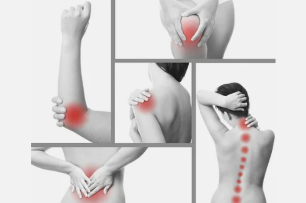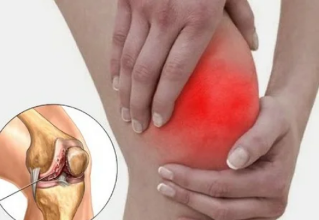Arthritis and arthrosis disease affecting the joints. They cause pain during movement, significantly reduce quality of life. Arthritis and osteoarthritis what is the difference? In order to understand what arthritis is different from osteoarthritis need to know the common features, the peculiarities of and risk factors for each disease.

What happens in arthritis?
The disease developed inflammatory process affects the entire body. The reasons for the development of the disease can be infection (infectious), trauma (traumatic), autoimmune diseases (rheumatoid).
Arthritis in the body is present all the signs of inflammation:
- The increase in body temperature, fever;
- The increase in total blood protein, immunoglobulins, C-reactive protein;
- May be accompanied by another inflammatory process, not previously identified.
What happens in osteoarthritis?
Osteoarthritis – a disease caused by degradation of the cartilage. The inflammatory process is localized only in the joint cavity, is a consequence of the deformation of the joint. The result is increased strain on the connection due to old age, after injury, can occur deformation of the bone parts, friction occurs between the surfaces of the joint. The result is a thinning and deformation of cartilage.

In this disease the body no obvious signs of inflammation:
- Increased local temperature (only in the area of the affected joint);
- Biochemical and General blood tests is normal;
- Occurs when the deformation of cartilage, not accompanied by other inflammation.
The similarities and differences between diseases.
The two diseases have both similarities and differences. The main similarity of arthritis and osteoarthritis is the symptoms:
- Crunching, creaking during movement;
- Pain;
- The limitation;
- Swelling, redness in the affected joint.
However, the difference between arthritis and arthrosis more important than the similarities.
- Age. Arthritis – a disease that affects older people, elderly. It is associated with age-related degradation of cartilage of the joints. Arthritis often affects young people, is a consequence of prolonged infection, inflammation in the body.
- The localization process. Osteoarthritis develops only in the joint under the action of risk factors (age, frequent overload, overweight, etc.). Arthritis affects the whole body, can cause a rise in internal body temperature, fever.
- Pain. When arthritis pain in the extremities occurs during movement acquires a permanent character in the development of the disease. Arthritis there is a sharp, constant pain.
- Deformity of the joint. In osteoarthritis the bone connection components are deformed due to the degradation of cartilage. Arthritis does not cause changes in the articular surfaces of bones.
- Loss of motor function of joints. The development of osteoarthritis leads to limited movement gradually. Arthritis restricts movement only in the acute phase of the disease.
The difference in the causes of arthritis and osteoarthritis, the common causes.
In order to better understand the difference between the two diseases – arthritis and osteoarthritis – it is necessary to know their causes.
Causes of arthritis are more likely to be:
- Infection (viral, bacterial, fungal);
- Allergies, autoimmune diseases.
The main preconditions for the development of osteoarthritis:
- Overloading the joint (activity, weight);
- Age-related degradation of cartilage.
In addition, there are a number of common causes for both diseases:
- Injury;
- Disorders of metabolic processes in the body.
- Insufficient intake of vitamins and minerals;
- Congenital disorders of bone and cartilage.
The difference in symptoms.
Signs of arthritis and osteoarthritis differ in character, severity, time of occurrence.
Symptoms |
Arthritis |
Osteoarthritis |
| 1. Temperature rise | Body temperature increased to 38-39C | Perhaps the local increase in temperature in the region of the affected joint |
| 2. Swelling | The soft tissues around the joint become swollen from | Swellings appear on the 3rd stage of the disease |
| 3. Stiffness in the morning | Occurs throughout the body | Occurs only in the affected connection |
| 4. The loss of motor functions | Only during the acute stage of the disease | Develops gradually, leading to ankylosis (complete absence of motion in the joint) |
| 5. Change the shape of the joint | Not happening | Happens |
| 6. The nature of the pain | Sharp, constant, worse at night | Nagging, dull, occurs when the movements are stronger in the morning. |
Because of the similarity of symptoms, the need arises in the differential diagnosis.
Diagnosis of diseases.
Correct and timely diagnosis helps to distinguish arthritis from osteoarthritis and to prescribe the right treatment. Basic methods of diagnosis in diseases of the joints remain the same:
- Radiography;
- Ultrasound of the joints;
- Biochemical analysis of blood;
- Arthroscopy.
Disease |
Diagnosis |
|||
Ultrasound |
X-ray |
A blood test |
Arthroscopy |
|
Osteoarthritis |
Reduction of the joint space, irregularities of cartilage. In the synovial fluid has contaminants. | Change the anatomical shape of the joint, the presence of osteophytes (outgrowths of bone), the cartilage is thin, uneven. Inside the joint space is narrowed. | The absence of signs of inflammation – the main difference between osteoarthritis arthritis. | Osteophytes, degradation of cartilage, reducing the gap between the bone structures of the compounds. |
Arthritis |
Sinovialnye sheath of cartilage is uneven, the presence of inflammatory exudate in the joint cavity (pus). | Slight osteoporosis, a softening of bone tissue. | C-reactive protein, increased levels of alpha-, beta-globulin, the appearance in blood of antibodies, increased ESR. Increases the content of uric acid, in some cases there is anemia (decreased hemoglobin). | The emergence of erosions on the cartilage and bone tissue, protrusion of the synovium into the joint cavity. |
Features of treatment of arthritis and osteoarthritis.
Treatment of arthritis and osteoarthritis is a little different, it consists in:
- The pain and inflammation.
- The maintenance of cartilaginous tissue of joints.
- The recovery of motor function of the joint.
- The prevention of relapses (repetitions).
The only difference in the treatment of arthritis is antibiotics, antiviral and antifungal medications that are not prescribed for osteoarthritis. Doctors usually prescribe penicillins, cephalosporins and aminoglycosides.

In exacerbations of the disease need treatment in the hospital.For the treatment of pain and inflammation are assigned non-steroidal anti-inflammatory drugs (diclofenac, indomethacin). Ointments are appointed on the basis of these drugs (Fastum gel, voltaren, deep relief). In the absence of results of treatment of NSAIDs can replace corticosteroid injections into the capsule connection.
Support the cartilage of joints help hyaluronic acid, hondroetina – hondroprotektory. They stop the degradation of joint tissue, stimulate the processes of regeneration. Courses their admission lasts from 1 to 10 months, depending on the stage of the disease.
The lack of results of conservative treatment and therapy can cause the target of the operation. Most often, a second arthroscopy, during which the cavity of the joint and remove inflammatory exudate, pieces of cartilage, blood clots. In the last stages of deformation units carried out the arthroplasty (joint replacement with artificial), osteotomy (resection of the deformed bone structures).

In addition, doctors prescribe physical therapy and physical therapy.
- Laser, magnetic, ultrasonic therapy;
- Electrophoresis;
- Massages;
- Therapeutic baths (mud, salt);
- Reflexology (acupuncture).
Physiotherapy is exclusively performed in a medical institution under the supervision of a physician-physiotherapist. It controls the degree of stress on the joints, the correct execution of the exercises.
Prevention of arthritis and osteoarthritis.
To protect joints is possible if you follow some simple rules:
- Load connections must be moderate. Excess weight, frequent training with heavy weights creates a threat to connection overload. In addition, the probability of injury increases many times.
- Proper, balanced nutrition. Daily diet should include all the necessary vitamins and minerals. With little food should take food additives, vitamin-mineral complexes.
- Women should abandon the frequent, prolonged wearing of high heel shoes. Every inch heel increases the load on the spine per 10 kg on lap 20.
- Protect joints from hypothermia. Arthritis, unlike osteoarthritis, is the result of infection, the low temperature contributed to its spread in the body.
Conclusion.
Arthritis and arthrosis can be a serious problem in the life of an active person, regardless of age. Pain and stiffness in the limbs much reduced quality of life, cause disability, and disability. It is important to understand what are the differences between diseases in time to see a specialist – he will spend the differential diagnosis, say, than to treat arthritis and osteoarthritis.
































